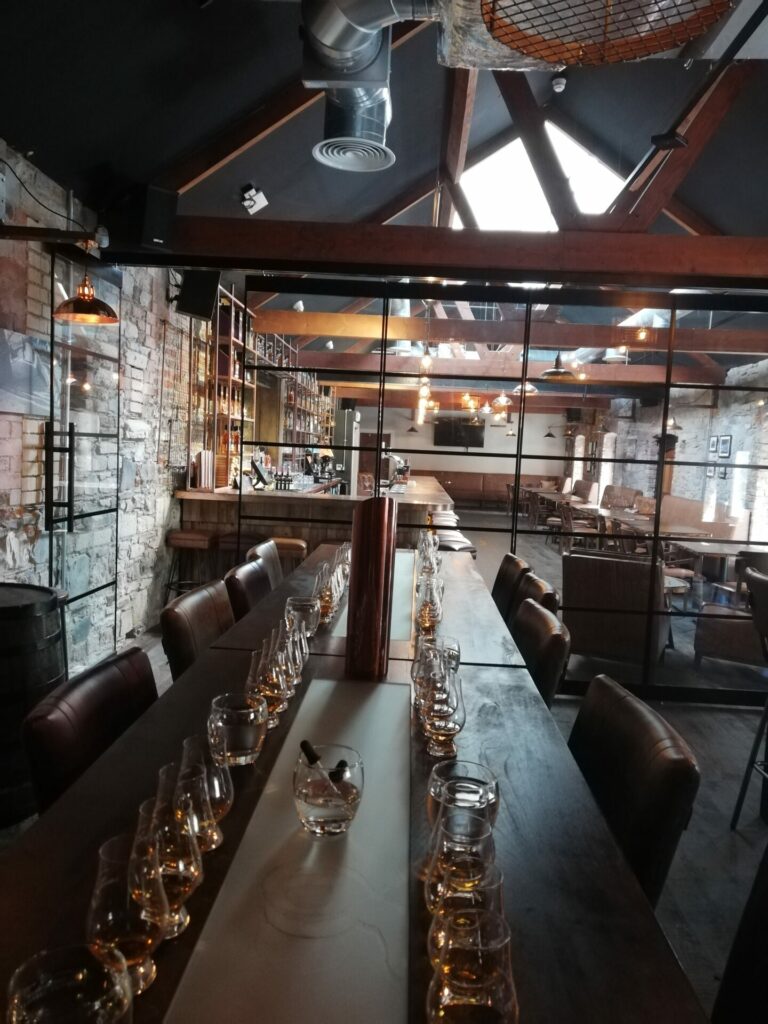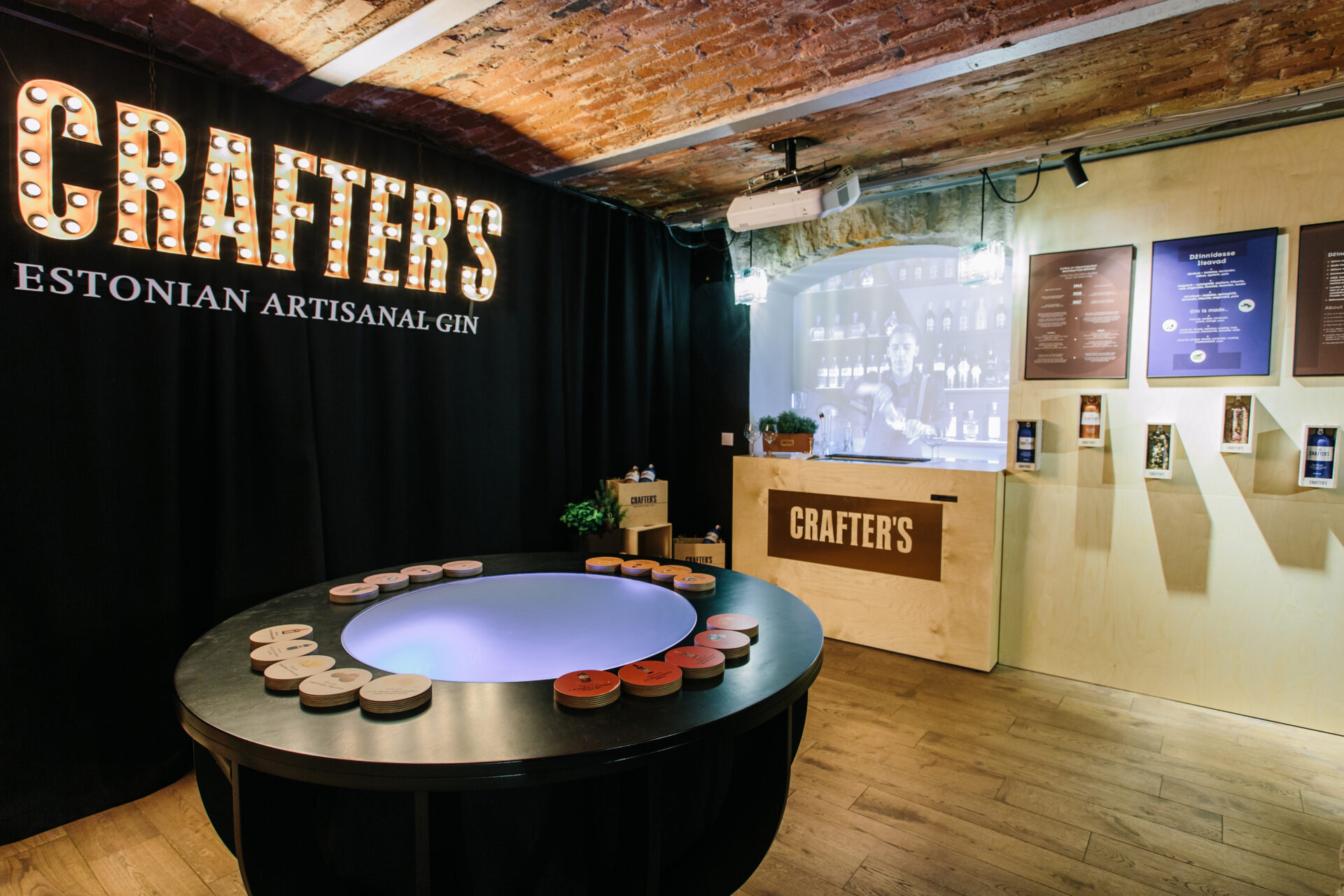Promoted by spiritsEurope
Tourism associated with the spirits sector enables the general public to better understand the manufacturing process of beverages linked to local and ancestral know-how. This form of tourism offers a multiplicity of experiences accessible to any type of audience, with the cultural aspects combined with the craft dimension.
The International Center for Spirits is a non-profit organization of professionals from the spirits industry who say that spirits tourism reaches 25 million visitors per year around the world (except during the health crisis). This form of industrial tourism, also called 'know-how tourism', has grown steadily over the years. In Europe alone, the estimated frequency is about 8-9 million, including the UK which is the continent’s first destination with 2.5 million “spirits tourists”, of which 2 million are in Scotland. France (2 million), Ireland and Spain (around 1 million each), Germany, Italy, Netherlands also play an important role without forgetting Scandinavia and Poland.
In Europe, hundreds of distilleries open their doors and for most of them, it is mandatory to book in advance. Their websites usually provide information such as the description of tourist offers, terms, duration, and prices.

Visitor Centre of the Dublin Liberties Distillery (https://thedld.com/book-a-tour/)
Developing competence and confidence
But what is spirits tourism? It refers to the visit of a company which produces distilled beverages or a museum space related to spirits. During the tour, visitors discover the facilities, the stills, the cellars, the know-how, the brand story and the range of products. In many places they can also enjoy a deeper experience with exclusive tasting, masterclass, private meeting with the cellar master, workshop on the art of blending, cocktails or food pairing workshops.
Artistic or recreational activities indoor or outdoor can also be enjoyed such as escape game, treasure hunting game, trekking, bicycle or electric scooter ride in the estate, art exhibition, show, concert etc. Accommodation, meal taken at a distillery, picnic in the vineyards or orchards are also part of the possibilities. Tailor-made experiences can sometimes be set up on request, with specific activities for groups also.
It is an amazing and innovative activity for couples, groups and families. Beyond the connoisseurs, there is an increasing interest from the non-initiated people in favour of a sector related to the agricultural world. As it is important to explain that spirits (brandy, whisky, gin, vodka or liqueurs) come from 100% of agricultural raw materials. Moreover, spirits are linked to the craft industry and the transmission of a know-how often inherited from several generations or even several centuries.
This form of tourism with a cultural and sometimes creative dimension, through participative workshops, offers an approach off the beaten track. An ideal option to discover or rediscover a sector during the holidays, a weekend or a day off. A way to increase its knowledge and expertise on complex and even “secret products”. This, after passionate and exciting conversations, interactions or moments spent with distillers or their representatives. In addition to a privileged relationship with a house or a brand and its values, this is an opportunity of tasting and comparing products before buying, including getting access to special series only available in the shop or showroom related to the site.
Visitors feel valued as distilled drinks often express premiumness, social status and friendliness. For the distillers, often craft players, direct sales generated by visits brings profitability. It is a way of doing business in short circuits, without intermediary and in direct contact with the end customers. These interactions can help producers to develop new recipes that best meets the demand. While customers develop vocabulary, competence and confidence to select their drinks in bars and restaurants or to make their choice in the retail.
Explore Cognac, a collective ambition for tourism - listen to those promoting their region and know-how by creating links with visitors through experiences that highlight the Cognac appellation in all its dimensions!
An alternative to mass tourism
Spirits tourism is an alternative to mass tourism as it can bring tourism in areas usually less frequented. Many distilleries are located in rural areas, villages or small towns, less crowded and even remote. This kind of tourism clearly contributes to the attractiveness of places that are sometimes secondary in terms of tourism. Distilleries welcoming visitors create a positive ecosystem around them, including the nearby restaurants and hotels or accommodation and are sources of ideas and projects for tourist offices, local institutions or regional committees.
Local events and festivals linked with spirits tourism animate and provide vitality and attractiveness to territories. Not to mention the local job creations as a result of this territorial vitality. Spirits tourism also means generating tourism all year round since many activities can be practiced outside the spring and summer period. In addition to families and workers, many retirees are interested and even passionate about craft skills. Every season, there are things to showcase in the farming community.
Preservation of traditions
Spirits drinks belongs to a heritage. They are part of the national culture and stand as a symbol of excellence for many countries. Distillation was developed at the end of the middle age in Europe for brandy, whisky, vodka or gin. Monks and apothecaries also had at that time a particular know-how concerning liqueurs. The numerous geographical indications for spirits in Europe reflect traditional and regional uses. The landscapes sometimes testify of that. Making know and promoting these skills to the general public is a way of maintaining traditions. This contributes to a form of sustainable development.
Suggested websites for spirits tourism:
By Jean-Louis Laboissière, International Centre for Spirits (CIDS) and Ulrich Adam, spiritsEUROPE

